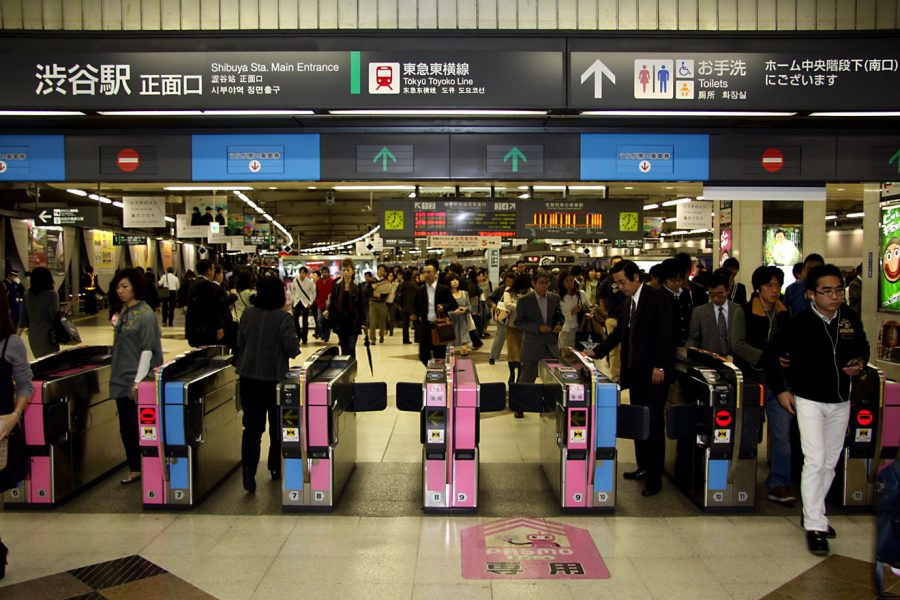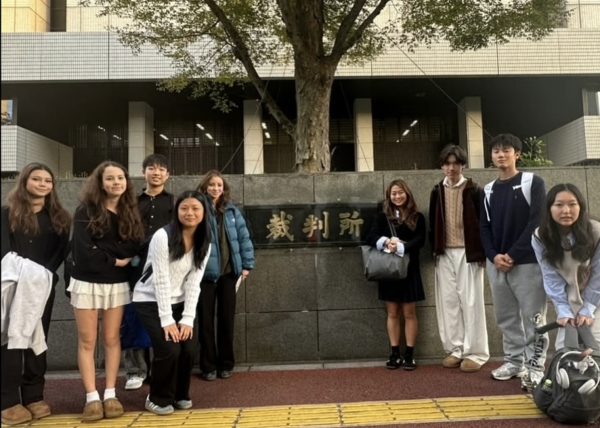The Olympic Games and Public Transportation
Photo by Photo under Creative Commons license
October 5, 2019
In less than 300 days, we the residents of Tokyo have a lot to look forward to: the Tokyo Olympics. The Olympics will bring many riders to the Tokyo subway system, which is known for its versatility, cleanliness, and ease of use. However, it also happens to be known for its train cars that overspill with a seemingly endless supply of people. So, what does this mean for us in Tokyo 2020?
Just a few weeks ago, a typhoon hit the Kanto region, causing multiple train lines to shut down momentarily. This caused a massive backup of people in the train system, almost doubling the ordinary worker’s commute time. This over-congestion can sometimes be seen on ordinary days as well. If you have ever been on the train during morning commutes or night time return commutes, you would be aware of how jam-packed it becomes, even with no external stresses on the system.

According to the Asahi Shimbun, the Games are expected to draw more than 600,000 people to the city. That added to the approximate 20 million regular commuters is bound to cause a problem. A regular subway train car is able to accommodate 200% of its original capacity if needed. It is speculated the increase in commuters the Games bring, could cause the number to rise to a staggering 300%. Neither Japanese trains nor stations are built to withstand this sort of congestion.
Past Olympic hosts have faced a similar dilemma, such as London. To prepare for this, workers were encouraged to either commute via car or simply work from home, which eliminated the problem. So why can’t Tokyo do the same? First off, due to the convenience of public transportation, car ownership in the city is very low. In fact, according to Statistics Japan, it is the lowest of all prefectures in Japan, with only 23% of residents owning cars. This would make commute via car very difficult. The second reason has to do with the Japanese work culture. In Japan, workers are often expected to show up to work no matter the circumstances. Therefore, working from home is often not an option for many people. Thus, to see a change in train congestion, we would need to see a change in the Japanese work culture.
Here are some ideas about how Tokyoites might help:
- Commute earlier
- Bike to work
- Avoid stations near Olympic venues
- Try and take some time off work? Go on a vacation?
I know for sure I’ll be avoiding the trains during these times. I think I’ll just enjoy the Olympics from the comfort of my TV.





















Jennifer • Dec 13, 2019 at 8:56 AM
This is a well written article, and it was very clear and informative about the current and upcoming issues of transportation in Tokyo. I know that I never like being on the train when it’s extremely crowded.
Kent Neureiter • Dec 13, 2019 at 8:49 AM
I really liked this article with how well written it was. There were a lot of percentages and numbers in your article which made your article much more authentic. This was also a very informal and helpful topic for everyone in Japan.
Calla Wilcox • Dec 12, 2019 at 12:15 PM
This is a very well written piece and it is extremely informative, which is great! I like the listed alternatives to training and I think it is cool how the percent of people visiting was added into the article because it gave more perspective and authenticity.